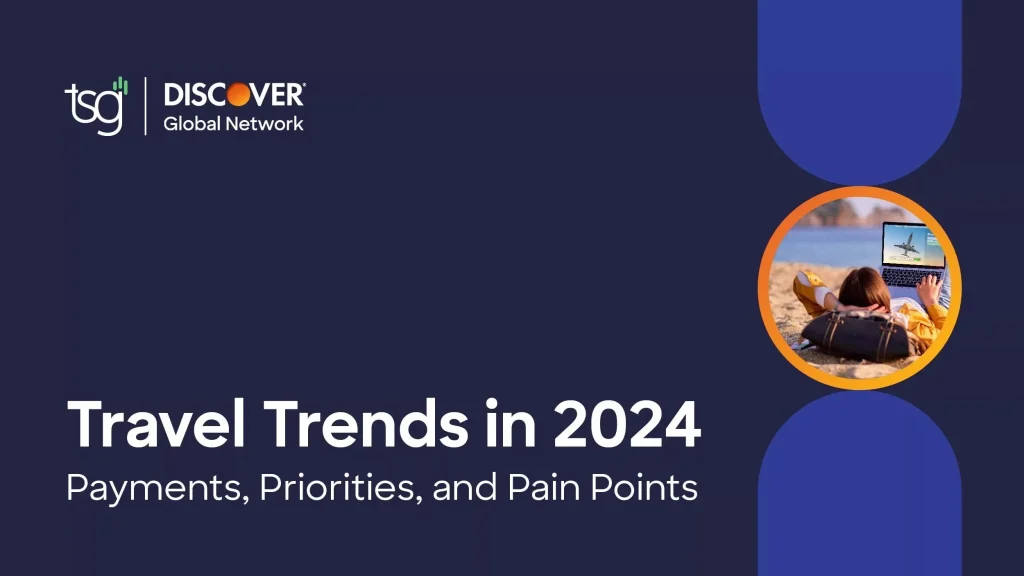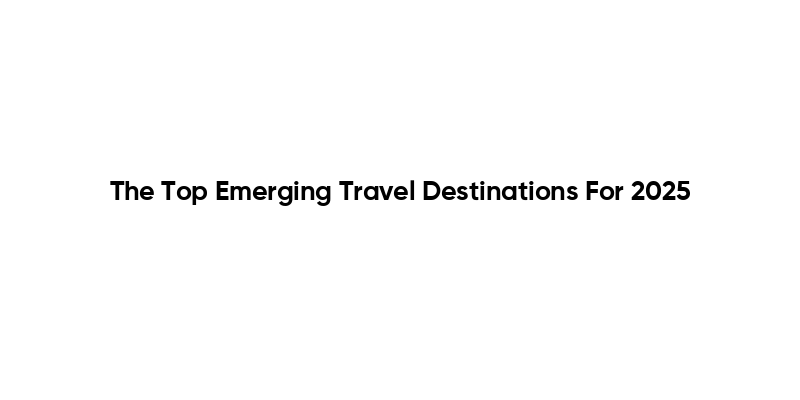In recent discussions surrounding consumer travel trends, insights from industry leaders highlight intriguing patterns shaping the future of travel. According to Glenn Fogel, CEO of Booking Holdings, travelers are continuing to prioritize their holiday travel plans, despite ongoing economic fluctuations. This robust consumer spending on travel suggests that individuals are valuing experiences over material possessions, further supported by the latest travel spending trends. As the holiday season approaches, optimism prevails, with expectations of a strong surge in bookings that will undeniably influence the economic impact on travel. Fogel’s insights, shared during a CNBC interview, reveal the resilience of the travel industry even in the face of external pressures, promising an exciting landscape for travelers and businesses alike.
Exploring the dynamics of the travel landscape, there are notable shifts in consumer behaviors and preferences that are redefining how we approach vacations. With a keen focus on travel patterns, industry analysts are delving into the motivations driving holiday jaunts, revealing a steady commitment among travelers to invest in their experiences. The growing appetite for adventure, alongside evolving economic conditions, offers fresh perspectives on consumer engagement within the travel sector. As industry leaders navigate these changes, discussions about travel expenditure highlight the significant role of strategic planning in response to emerging travel behaviors. The insights gained from various interviews, including those with top executives, provide a roadmap for understanding how consumers are reshaping the world of travel.
Current Consumer Travel Trends and Insights
In the evolving landscape of travel, current consumer travel trends show a significant shift towards experiential travel. Travelers are prioritizing unique experiences over traditional vacations, with a keen interest in immersive cultural activities and sustainable tourism options. This trend is bolstered by a growing emphasis on authenticity, prompting consumers to seek out local connections and genuine experiences that enrich their journeys. The emphasis on authentic experiences is reflected in the high demand for adventure travel, wellness retreats, and eco-friendly accommodations.
Furthermore, the shift towards experiential travel highlights a growing consumer awareness towards the economic impact of their choices. As discussed by Glenn Fogel during his interview on CNBC, travelers are not just considering cost but also the value and impact of their travel decisions. This inclination towards conscious consumption indicates a robust market demand, wherein consumers are willing to invest in meaningful experiences, even in the face of economic uncertainties.
In light of the strong desire for authentic experiences, travel spending trends have been notably resilient. As people continue to allocate budgets for travel despite broader economic challenges, it demonstrates a clear prioritization of leisure and holidays. This trend is reflected in rising booking rates for both domestic and international travel, which points to a strong recovery trajectory for the travel industry.
Additionally, the increase in travel spending is supported by various factors such as higher disposable incomes and pent-up demand following travel restrictions. Consumers are increasingly redefining their holiday travel plans, opting for longer trips and more elaborate itineraries. As highlighted by Fogel, this resurgence in travel demand is not just a short-term rebound; rather, it suggests a long-term trend where travel remains a vital aspect of consumer spending.
Economic Impact on Travel Industry
The economic impact on travel is a complex interplay of various factors including consumer confidence, spending habits, and broader economic conditions. As Glenn Fogel articulated in his interview, while economic uncertainties persist, the overall sentiment among consumers remains optimistic. This resilience is crucial in understanding how the travel industry adapts during challenging times. Despite fluctuating economic indicators, consumer engagement in the travel sector signifies a robust recovery process.
Moreover, the ongoing recovery in the travel industry highlights the importance of flexible booking policies and enhanced customer service. Companies like Booking Holdings are adapting by offering more personalized travel solutions and better cancellation policies, thereby instilling confidence in travelers. The ability to pivot and respond to consumer needs is essential for maintaining growth in such a dynamic market, allowing the industry to flourish even amidst economic challenges.
As we examine the future trajectory of travel, it becomes increasingly evident that the sector will need to navigate various economic challenges while continuing to innovate. With continued investments in technology and strategic partnerships, the travel industry can bolster its resilience and ensure sustainability. The emphasis on maintaining strong consumer relationships, coupled with adaptability, will play a crucial role in shaping the future landscape of holiday travel.
Additionally, emerging trends such as remote work and digital nomadism have contributed to shifts in travel patterns, presenting new opportunities for businesses within the travel and hospitality sectors. As more individuals seek flexibility, the way vacations are planned—and the types of services offered—will inevitably evolve, highlighting the continued economic impact of consumer travel trends.
Holiday Travel Plans: Trends and Predictions
The anticipation surrounding holiday travel plans reflects not only consumer preferences but also broader trends that are shaping travel behavior. As Glenn Fogel pointed out, many consumers are expressing a renewed enthusiasm for holiday travel this year, demonstrating a willingness to forge ahead with plans even in uncertain economic climates. This resurgence is evident in historical booking data from previous years, where an increase in holiday travel plans typically coincides with the approach of the festive season.
Moreover, the trends suggest that travelers are opting for more diverse destinations this holiday season, moving away from overcrowded tourist spots to more off-the-beaten-path locales. This shift offers travelers a chance to enjoy more personalized experiences while potentially alleviating the pressures on traditionally popular destinations. In turn, this diversification is likely to impact travel spending trends, as travelers look for unique ways to celebrate their holidays while investing in local economies.
Looking ahead, industry experts, including those interviewed by CNBC, predict that the upcoming holiday season is set to witness a dramatic increase in travel bookings compared to previous years. This surge in traveler confidence highlights an eagerness to reconnect with loved ones and create lasting memories, unlocking new opportunities for travel providers and industry stakeholders alike.
Additionally, the continuation of flexible travel options and enhanced safety protocols is poised to influence holiday travel plans positively. As booking patterns evolve, companies are encouraged to integrate customer feedback into their offerings, ensuring that they cater to the changing needs of holiday travelers. Overall, understanding consumer behavior during this critical period will be vital for shaping successful business strategies within the travel sector.
Insights from Booking Holdings Interview with Glenn Fogel
In the recent CNBC interview featuring Glenn Fogel, CEO of Booking Holdings, a wealth of insights emerged regarding the current state of the travel industry. Fogel emphasized that, despite ongoing economic uncertainties, consumer interest in travel remains strong. The interview provided a candid reflection on how potential challenges are being met with innovative solutions within the travel sector, showcasing adaptability as a key theme for future success.
Fogel also highlighted the importance of understanding travel spending trends and consumer preferences in tailoring services to meet shifting demands. By focusing on personalization and customer experience, Booking Holdings is strategically positioned to respond to evolving consumer travel trends. This perspective not only augments their market competitiveness but also reinforces their commitment to delivering quality travel experiences.
The exchange on CNBC also underscored the significance of market resilience. Fogel’s insights revealed an industry that, despite challenges, remains buoyed by strong consumer demand. This perspective illuminates the core of the travel industry’s recovery, where technological advancements and data-driven strategies are paving the way for sustainable growth.
In conclusion, Glenn Fogel’s interview serves as a reminder of the travel industry’s resilience and commitment to evolving alongside consumer needs. As understanding of economic dynamics and consumer behavior deepens, the industry is better equipped to adapt and thrive in a post-pandemic world.
Frequently Asked Questions
What are the latest consumer travel trends for 2023?
Consumer travel trends in 2023 indicate a strong preference for vacations and travel experiences despite economic uncertainties. Insights from industry leaders, like Glenn Fogel of Booking Holdings, show that consumer spending on travel remains robust, with many prioritizing holiday travel plans.
How are economic factors influencing travel spending trends?
The economic impact on travel has been significant, but consumer travel trends suggest that many travelers are willing to spend on experiences. Even in uncertain economic climates, bookings remain active, reflecting resilience in travel spending trends.
How did Booking Holdings discuss consumer travel trends in their recent interview?
In a recent interview, Glenn Fogel highlighted that consumer travel trends reveal strong demand for travel services. He noted that despite economic challenges, travelers are increasingly committed to their holiday travel plans, indicating a willingness to prioritize travel spending.
What impact do holiday travel plans have on consumer travel trends?
Holiday travel plans are a key component of consumer travel trends, especially during peak seasons. Insights from Booking Holdings suggest that travelers continue to prioritize these experiences, contributing to a stable demand in the travel industry amidst economic fluctuations.
What insights did Glenn Fogel provide about consumer spending on travel?
Glenn Fogel emphasized that consumer spending on travel remains high, showcasing a trend where travelers prioritize vacations even during uncertain economic times. His insights reflect a willingness to invest in travel experiences, which is crucial for the travel industry’s recovery and growth.
| Key Point | Details |
|---|---|
| Consumer Spending | Consumer spending on travel remains strong despite economic uncertainties. |
| Holiday Season Optimism | Fogel is optimistic about travel demand during the upcoming holiday season. |
| Traveler Prioritization | Travelers continue to prioritize vacations and travel experiences. |
| Resilient Demand | There is a resilient demand for travel services amidst economic challenges. |
| Bookings Activity | The travel industry is seeing active bookings and continued travel plans. |
Summary
Consumer travel trends indicate a strong willingness to spend on travel experiences, even with the backdrop of economic uncertainty. Glenn Fogel, CEO of Booking Holdings, emphasized this resilience during an interview on CNBC, noting that consumer spending on travel continues unabated. The upcoming holiday season is expected to further highlight this trend, as travelers prioritize vacations despite economic challenges. Overall, the travel industry appears to be adapting well, maintaining robust booking activity and reflecting positive consumer sentiment.



